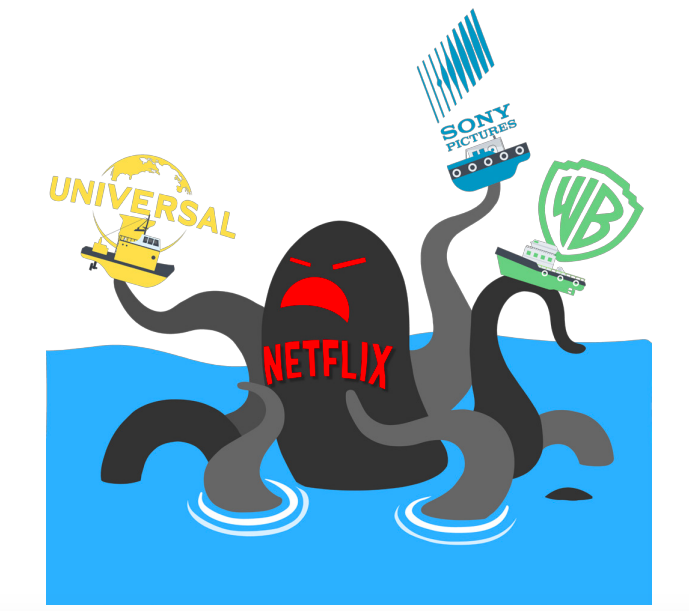It’s not exactly breaking news that 2020 was an awful year for the movie business. If you had a story you wanted to tell on the big screen, hopefully, you released it in the first two months of the year, because starting in the middle of March, all theatres quickly closed down. Even when they opened back up later on in the summer under strict guidelines, people weren’t flocking back to make up for the lost time.
However, all is not lost, because even before Covid-19 turned the entertainment industry upside down, there were big changes coming. Streaming was already changing people’s patterns when it came to watching big-name entertainment, and you would be foolish to ignore how important social media was in getting a fanbase excited about a new film or series (and correspondingly spend money on it). Read on to discover how the major film studios and theatres plan to make 2021 and beyond big years for big profits.
Keep Offering Blockbusters
While Martin Scorsese started a bit of a stir late in 2019 when he criticized how the Marvel Cinematic Universe was destroying more high-brow features, one cannot deny that when it comes to delivering big profits, a superhero cape and a lightsaber fight is going to do much better than a gangster film or star-studded drama. In fact, 2020 was expected to be another banner year for many flashy franchises, which always comes with the heavy promotion in traditional and digital forms.
There might be a chance to go viral, but don’t forget the glitzy premieres, complete with full London escort reviews. People talking about a film before its release is just as important as the score it gets on Rotten Tomatoes or any other review aggregator. Creating a fanbase even before the product is released is extremely beneficial. It is more likely that this group would spend money on associated merchandise, which helps the overall profitability, and acts as its own form of advertising.
You’ll find that if people have heard about the series beforehand, it’s more likely they’ll fork over their hard-earned dollars, which is why the new James Bond (No Time to Die), Dune, and the sequel to Top Gun were all the most highly anticipated.
The fact that all of these films have had their release pushed back to 2021 when things, hopefully, get back to normal is already proof that it will be a banner return year, especially when one considers that people will be very excited to get back to the routine of having their minds blown by the big screen experience.
Don’t Fight Streaming
Warner Bros. caused quite a stir in December by announcing that all the films they planned to release in 2021 (including the ones originally slated for 2020) will release on the same day on their streaming platform, HBO Max. In fact, they are starting early, with DC Comics superhero blockbuster ‘Wonder Woman 1984’ releasing to theatres and the streaming service on Christmas Day. While markets outside of the United States will not have access to this service on their TVs and smart devices, this will definitely affect how much money these films will make during their time in the theatres.
It remains to be seen whether this will be a regular set up moving forward or is just a one-year test in a year where the effects of Covid will be receding, not entirely gone. But it will be an opportunity for people to make a decision about whether to buy an HBO Max subscription and pay the monthly fees instead of planning to go to the theatre. In some cases, getting someone to stick with a streaming subscription can be even more valuable than an occasional movie ticket.
TV shows based on big film franchises like Marvel and Star Wars have been around for years, but they are typically seen as lesser products that only a few diehard fans will watch with any regularity. But ‘The Mandalorian’, a Star Wars-based series on Disney-Plus, rewrote these rules by creating a two-episode season that got the entire internet talking, with ‘baby Yoda’ in particular going viral.
It became the main reason to sign up for this streaming service in the first place, and with more Star Wars films and series coming down the pipeline, it’s proof that a strong episodic series can be just as important for strengthening the profits of a big IP as a well-received tentpole film.
Embrace International Markets
While ‘Hollywood’ has always been a recognized word around the globe, and the biggest American films are eventually released worldwide, for decades most of the money made was domestic. But that is no longer the case. With the economic developments of the last several decades, it should be no surprise that China is now the biggest box office market in the world.
This, of course, is not just because of Hollywood films going to Asia, but the emergence of the Chinese domestic film industry. Just as in America, massive media corporations are behind the development, production, and release of these movies, and with the massive increase of people living a middle-class lifestyle, going to see a show is no longer an infrequent luxury.
One of the unintended effects of this is that American films are less ‘American’, in the sense that any sort of dialogue or plot point that might not be easily understood outside of the United States will be changed before production.
Movies that are dependent on a global audience to turn a (big) profit will be made with a global audience in mind. Animated films are also becoming cheaper to make, which means they are easier to re-dub successfully for each country, which goes a long way in bringing in audiences that aren’t interested in reading subtitles.





